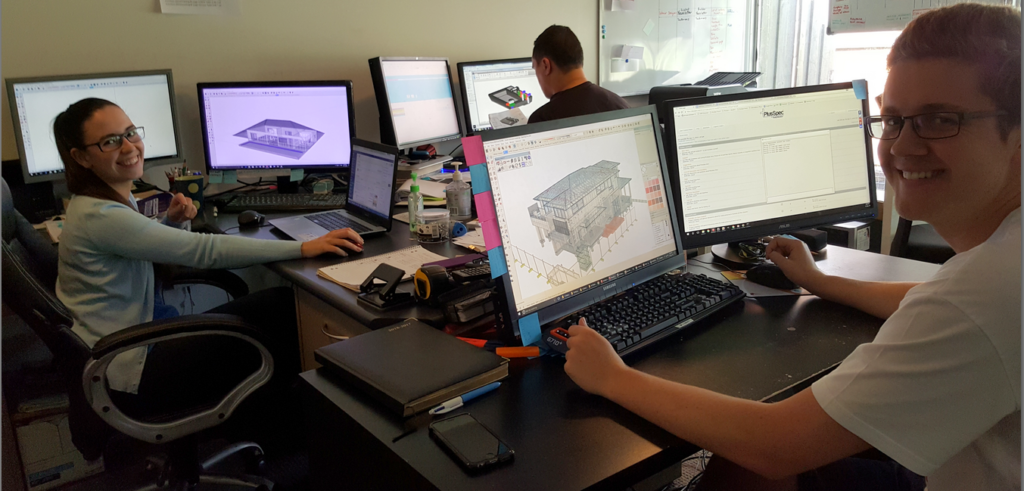Does the construction industry have a disconnect with Millenials?
Many of us wrongly think that the new generation of young adults entering the workforce are afraid of hard work and physical labour. However, statistics show that they’ll go to the gym, jog, and do more sport than we ever did. So if it’s not laziness or the fear of getting their hands dirty that is disenchanting our younger generation from entering the construction industry, then what is it?
Workplaces have changed significantly, yet the construction industry has not. Most of us in the industry still think that technology is a luxury, or that it has no real benefit. There also remains the ‘apprentice’ culture. Even I was guilty of this. In our industry, I think that we tend to bark at newcomers. It’s probably not even intentional – it’s just the way we learned (as well as an opportunity to let out some stress!). However, things have changed. This kind of workplace does not stimulate or encourage the new generation. It’s simply not the way that any other industry teaches new staff, and I believe that this is one of the main reasons why we are seeing a steady decline in new construction employees.
Students and apprentices thrive on technology. It is what they are brought up on. And yet, the construction industry, as well as the Educational Institutions (based in construction) are not embracing construction technology as much as they need to. In fact, most apprentices are still learning in the exact same way as our grandfathers did.
Education in other industries has been transformed because they understood that the old methods of communication didn’t work. They understood that they needed to embrace technology. However, the Construction Industry is yet to find a solid solution to newer, more innovative ways to teach a declining wave of our industry’s participants.
Could the answer come down to training? The prioritization of technology, training and implementation (instead of merely barking orders and blindly following the ‘old ways’) may just be the solution our industry needs. And guess what? It’s an easy fix.

I can only assume the rationale for the UK considering to call on the British Army to plug the skills gap in the skills-starved construction industry is that the construction industry in general needs more tech-savvy recruits, who also possess the fundamental skills and background needed for a successful career in construction? We all know that the army are at the forefront of technology, so it makes perfect sense to me that military leavers are an incredible, yet largely untapped resource that could help advance the construction industry and propel it into the future.

They might be tougher yet we all have to learn the fundamentals.
Technology holds the answers to encouraging our current and future generations of construction professionals.
Designing virtually on a computer and communicating construction methodology in a different environment is the answer. I’m convinced of this. I’ve been working with the “new generation”, “our future”, and it made me change the way I do things. I’ve introduced technology to new employees for some 10 years now, and I find that this enables young people to actually understand construction, as well as why different construction methodologies cost more money and why some projects are more difficult to build than others.
It took my hands-on experience to learn these things, yet to convey this experience to a new employee takes a lot of time, frustration and hard work. For me, the writing was on the wall, and I knew that I needed a better, more intuitive and appropriate system to teach my new employees. I drew a line in the sand and started a technology arm to our design and construction based company. My skills and resources were now being channeled into technology development and computer programming. These skills had to go into an existing platform that was proven to work for the next generation.
PlusSpec for SketchUp is the result of my continuing work, and my experience has been rewarding and fruitful for the industry. Thousands of students and apprentices are using PlusSpec, and I am proud that it is helping them to better understand and prepare for their careers.
When students/apprentices understand (and see) why they are doing something, they make less errors and gain confidence very quickly. With less error also comes less frustration, and ultimately less barking from the leader. This creates a friendlier and more productive workplace.
My generation (I’m 41) is not traditionally good with technology, yet my children adopt and embrace new technology without batting an eyelid. Working to their strengths instead of to their weaknesses is the obvious and easiest choice. If we ask ourselves why we barked at newcomers to the industry, was it due to their inexperience? Would we bark at someone who understood more in the beginning? Well maybe because we are old school, but nowhere near as much! A better, more informed generation of employees enables more efficiency and will encourage more workers to our desperately understaffed industry.
If the UK decides to utilize their armed forces, they will also need training – and they will expect technological solutions, such as PlusSpec. We need to think outside the square and implement better technology today.
If you are interested in learning more about PlusSpec you can contact my office on (02)9679 2429 during business hours or visit the PlusSpec Website. I am looking forward to a more productive and youth inclusive design and construction industry.


Leave a Reply
You must be logged in to post a comment.